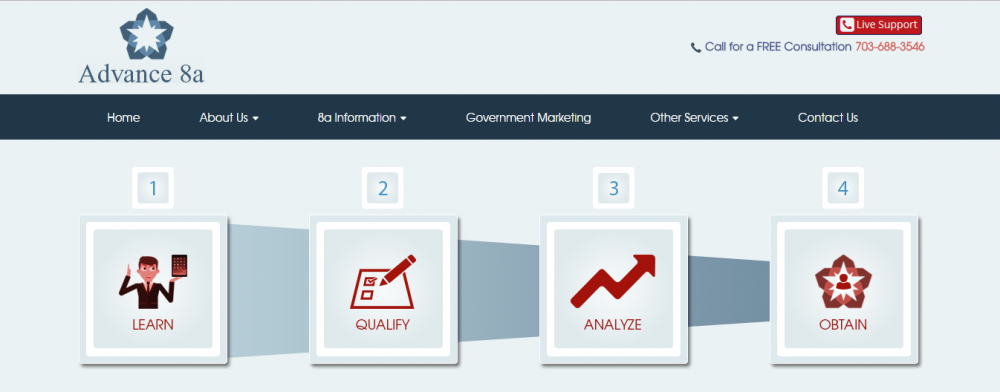An 8(a) certification is a diversity ownership certification that is issued by the Small Business Association. At least 51% of the businesses must be owned and operated by socially and economically disadvantaged individuals to qualify for certification. The 8(a) certification provides businesses with access to government-limited contracts and also entitles them to participate in SBA’s Business Development Program.
8(a) certification benefits
( 1.) Contracts for sole-sourcing — An 8(a) Certification most known benefit is that it allows its holder to win sole-source contracts. Contracts are offered directly by the federal buyer to 8(a) certified firms without an open bidding process. Consequently, the 8(a) firm can win contracts at a fair price without competition.
(2) Companies with a few competitors —
There are around 5,600 8(a)-certified small businesses from the roughly 24 million businesses in the US, limiting the field of competition to only
small businesses.
(3) Huge Federal Spending —
The latest 8(a) certification BD Program report card indicates that the federal government has spent over $45.8 billion on the program, which equals an
average of $6 million $8 million per 8(a) firm.
(4.) Minimizing red tape –
Contracting with only one source and sets aside contracts reduces the red tape associated with federal contracts. As a result, business owners are freed up to focus on running their company rather than submitting
complicated RFQs.
(5.) GWAC/IDIQ contracts —
Contracts for large quantities of indefinite delivery indefinite quantity allow companies with the Small Business Administration certification to apply. Positions on these contracts can lead to many large awards for 8(a)

firms.
(6.) Set-Aside Contracts —
8(a) firms with more established contracts bid for the set-asides. The contracts are reserved for 8(a) firms only. In this way, the scope of the competition is reduced without having to worry about the $4MM contract ceiling associated with sole sources.
(7.) Joint Venture Programs —
8(a) firms are permitted to enter into joint ventures or mentor-protege relationships with other firms. Having 8(a) certification, firms gain experience in federal contracting and expand their knowledge of government contracts. This also maximizes their federal performance history, allowing them to eventually win more contracts on their own.
(8.) Growth —
Certified 8(a) firms grow at a much faster rate than other firms. Among the fastest 50 information technology firms in America, according to a Washington Post report, 31 of the 50 firms were 8(a) certified.
